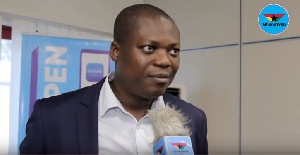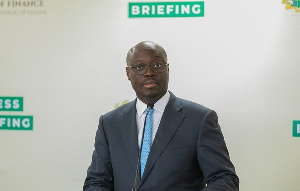Once again, the Bank of Ghana has bared its teeth at individuals and institutions dealing in unauthorised foreign exchange trading, which includes pricing in any currency other than the cedi; but such warnings have never been enough – the BoG needs to bite hard.
Last week, a public notice signed by the Secretary of the central bank, Ms. Alethea Godson-Amamoo, sent a strong message prohibiting the “pricing, advertising and receipt or payment for goods and services in foreign currency in Ghana”.
The notice further warned that “any violations are punishable by summary conviction, a fine of up to seven hundred penalty units or a prison term of not more than eighteen months, or both”.
However, this is not the first time that such directives have been issued by the central bank and been disregarded. On October 10, 2012, under the leadership of Dr. Henry Wampah, a similar directive was issued for the same purpose as today – preventing the cedi’a free-fall against the US dollar – but was never successful. The problem? Lack of implementation.
So, this time around citizens are expecting the Bank of Ghana to walk the talk and not conduct business as usual – issuing empty threats. Considering that the cedi fell by more than 18 percent in the first quarter of this year, it is important for Dr. Ernest Addison and his people not to fail the country as we have seen in the past.
Yes, the cedi looks relatively stable now; but various analysts have all said it is temporary, as the measures that have been used to ‘sort of tame it’ now are also temporary. It is therefore imperative for the Bank of Ghana to bite hard those individuals and institutions who price their goods and services in dollars – whether they accept payment in cedis or not.
Commenting on this in an interview with the B&FT, a senior law lecturer at the University of Professional Studies, Accra – Godwin Adagewine— said it requires all citizens to join the fight if Bank of Ghana is to effectively implement this directive.
“Some of these things will depend on the population for effectiveness. The regulator cannot be everywhere at every time, and they may not know. So, it is the individuals who undertake such transactions that are to report this to get the laws to work. If individuals report it, they have done their part. It will then be the regulator’s responsibility to take action,” he said.
Also commenting on the same issue, Head of Finance Department at the University of Cape Coast, Professor John Gatsi, said government must take the lead in ensuring that this directive is adhered to, as it has been the worst offender in this ‘crime’.
“The reason why implementation has been difficult comes from two perspectives: firstly, the fact that you see government contracts captured in dollars; so government has become the worst offender in the area of dollarisation. If government does not stop, I don’t see how it can be going after private institutions that are charging in dollars.
“Secondly, the inability of government to ensure that this economy is like it is in other countries which insist on using their local currency for every transaction. We don’t see that in Ghana, and that is what government should enforce,” he told the B&FT in an interview.
So, this time around, what the public is expecting from the Bank of Ghana -and even government, for that matter – is serious action and not empty words as has always been the case.
Business News of Wednesday, 15 May 2019
Source: thebftonline.com













